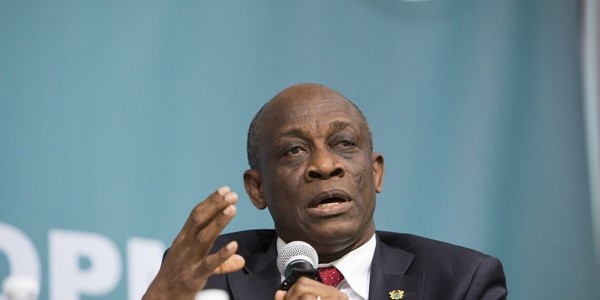Former Finance Minister, Seth Terkper, has reiterated his advice to the government not to engage in what appears to be another 'fiscal offset' in the 2023 budget, similar to what occurred in the government's 2017 budget.
He is therefore calling on the government to disclose its plan for dealing with a large ¢77 billion pipeline of arrears and contracts in the 2021 Budget Performance Report.
He noted that a similar plan was used to deal with the "single spine" wage arrears in 2020.
He argued that given the budget overruns are at the core of most debt challenges, transparency and accountability in government finances are crucial for securing an IMF programme. Moreover, they are also needed for sustainable economic growth and development.
Mr. Terkper also contended that the treatment of the banking and energy sector bailout costs as memoranda items, rather than adding them to the country's deficit and public debt stock, creates a false impression of fiscal consolidation.
The former Finance Minister again pointed out that this practice by government resulted in the rapid rating downgrades of the country's sovereign bonds and eventual debt default, with the deficit revised upwards to 7% and 7.2% for 2018 and 2019 respectively, when the IMF and ratings agencies adjusted Ghana’s fiscal deficit and public debt figures.
He recalled that in 2017, the incoming Akufo-Addo administration accused the John Mahama administration of overlooking arrears of about ¢7 billion. However, only about ¢2bn was carried forward to the 2017 fiscal year after an apparent offset of ¢5billon against total expenditures. At the time, Mr. Terkper opposed the move in various articles and interviews.
In a similar move, Mr. Terkper noted that the 2023 budget showed another apparent offset of ¢22 billion that also appears to reduce the deficit from about ¢60 billion to approximately ¢38 billion, adding “as with the 2.3% reduction in the budget or fiscal deficit in 2017, the repetition of the fiscal move results in a "paper" reduction by 3.7% of Gross Domestic Product”.
The former Minister also cautioned that this practice by government creates a false impression of fiscal prudence, which is unsustainable in the long term.
He again said such moves lead to a lack of transparency and accountability in government finances, which can lead to financial instability and economic turmoil.
Mr. Terkper's concerns reflect a broader need for transparency and accountability in government finances in Ghana.
“The government must address these concerns to build trust with its citizens, investors, and international partners. Failure to do so could lead to further economic instability and harm the country's long-term economic prospects”.
Latest Stories
-
FIFA Ranking: Black Queens drop to 66th globally and now 6th in Africa
25 minutes -
ofi Ghana improves access to education with new schools and supplies in 5 cocoa communities
32 minutes -
World Bank u-turn on Uganda loan ban ignites Africa’s LGBTQ+ rights crossroads
51 minutes -
At least 242 on board Air India flight to London that crashed after takeoff in Ahmedabad
58 minutes -
Fitch changes global oil sector outlook to deteriorating; predicts average oil price of $65 for 2025
1 hour -
The Plant Plug GH to host third Sip and Soil Experience on June 28
1 hour -
UK-Ghana Chamber of Commerce celebrates Fidelity Bank MD, Julian Opuni
1 hour -
Ghana braces for Economic Storm as Global Trade Wars Intensify
1 hour -
African Science Academy graduates 50 STEM girls
1 hour -
No live ammunition during Ga State festivities – Police caution
1 hour -
GIADEC to unlock the full potential of Ghana’s bauxite: A New Era for the Integrated Aluminium Industry
2 hours -
Ghana secures 0% tariffs for exported goods to China
2 hours -
Collateral registration hits over 1.4m since its inception in 2010 – BoG
2 hours -
US to partially evacuate embassy in Iraq as Iran tensions rise
2 hours -
Dietary Strategies in Management of Chronic Kidney Disease
3 hours

